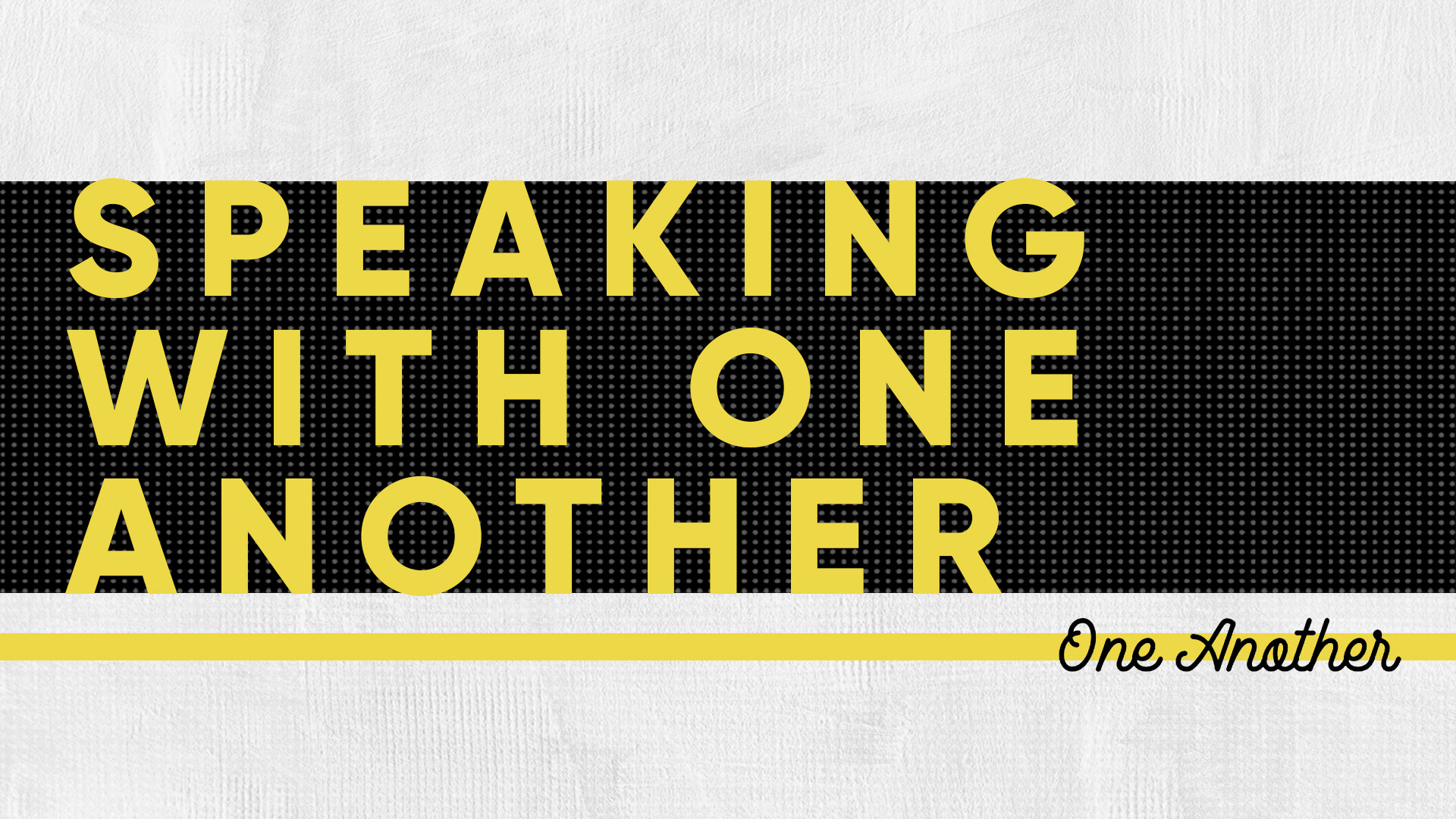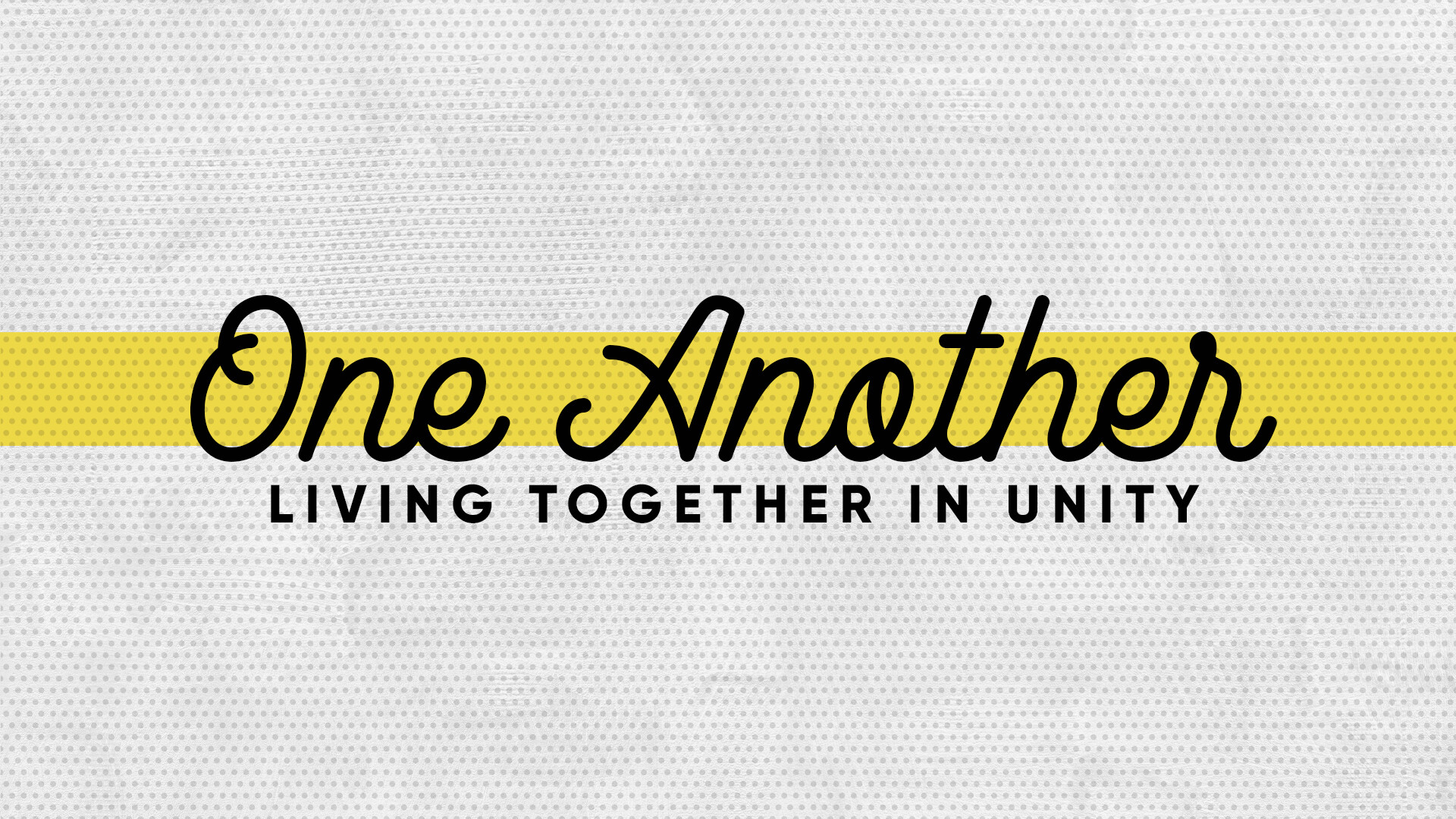953 episodes


On this Palm Sunday, well read about Jesus triumphal entry in Luke 19, as we learn how to fully commit to Jesus even when life is difficult. How can we allow him to disciple us instead of the crowd? How can we listen to his voice over all the others?


As Christ followers, we should be marked by generosity – living radically generous lives with our time, resources, prayers, whatever we have. When greed threatens to overwhelm our hearts and grip tightly to what we have, we remember how Jesus gave up his life for others joyfully, and it spurs us to do the same. In this message, well read about Zacchaeus in Luke 19, as we learn how to live open-handedly with what the Lord has given us.


Happiness is circumstantial and may be found in a moment, but the things of this world never satisfy. So how can we find lasting joy? In living like Christ, we learn that joy is only found in giving your life away. In this message, well explore Luke 18 to read the story of the rich young ruler – and well learn how Jesus called him into selflessness, true wealth, and dependence on him.


We will all experience times in life where we need healing – physical, spiritual, mental, or emotional. So how can we trust God in the midst of pain? How can we stand strong in our faith even if we dont receive healing. In this message, well explore the story of the ten lepers in Luke 17 and learn how to live a life of gratitude – in the midst of both pain and healing.


In this message, well read from Luke 15 as we explore new facets of the Prodigal Sons story. How can we rely on radical grace instead of our own works? And when we drift from our Father, how can we come back home?


As we move through the Lenten Season, well share several "unexpected encounters" with Jesus through the eyes of those he met in conversation, in challenge, through healing, and more. In each encounter, Jesus speaks truth, grace, and purpose into their lives so they are able to love and follow him more deeply. The same is true for us as believers – as we can experience the call to new life through our unexpected encounters with him.


In the covenant through Jesus, he represents all of humanity. What we could not do – keeping our side of the covenant – he does so perfectly. Jesus is able to fulfill all of the promises that we could not keep, and he redeems sinful humans and makes us acceptable and righteous before the Covenant Keeper. So, the end of the biblical story is actually a new beginning. Heaven comes to earth and Jesus, the new King of his kingdom, will reign forever.


As we traverse the unpredictable waves of lifes chaos, we often find ourselves grappling with the tension between divine order and the disorder that surrounds us. Together, well explore how communal worship and the Davidic Covenant can usher in a sense of peace amidst turmoil, revealing the harmony only Jesus can provide. The narrative of our lives is intertwined with a divine thread that, when acknowledged, brings profound order to our existence.


God established the Mosaic covenant just after a significant development anticipated in Genesis 15 had taken place: the emancipation of Abraham’s descendants from oppression in a foreign land. The focus at Sinai is how the descendants of Abraham must conduct themselves within the land as the unique nation that God intends them to be (Exodus 19:5-6).


This message presents an in-depth exploration of the Abrahamic Covenants eternal promises, highlighting how it offers believers a spiritual wealth that surpasses any material riches. Through the story of Abram, well examine the transformative journey from fear to faith and the enduring legacy promised by God. Well learn how to commit personally to our faith, embrace our identity in Christ, and utilize the blessings we receive for the greater good of humanity – all while reflecting on the significance of Christs sacrifice as the ultimate fulfillment of Gods promises.


This week, we explored Gods covenant with Noah. This specific covenant reaffirms his promises that he will never again interrupt the fulfillment of humanity’s creation mandate (Genesis 1:26-30, 9:1-7). Its implied from the scope of this covenant, that God’s redemptive goal will ultimately encompass all creation. The earth will now be a reliable place where we can live together – but God knows that we will not be. In this covenant Noah has to do nothing, and this one-way covenant reflects Gods heart towards us, too.


The beginning of a new year is the perfect time to focus on the everlasting promises of God - the foundations of our faith that we can hold onto in these uncertain times.


As we finish the Prayers of Christmas series, well dive into the Prayer of Thanksgiving – praising God for all he has done in 2023 and praying expectantly for 2024.


The angels who appeared in the sky over Bethlehem present a wonderful example for our prayers during this season. After an angel announced the Messiah’s birth nearby, Luke 2:29-33 says, “A great company of the heavenly host appeared with the angel, praising God and saying, ‘Glory to God in the highest heaven, and on earth peace to those on whom his favor rests.’” How can you praise and give glory to God this Christmas?


In the well-known Christmas story, Joseph is mentioned, but nowhere is he quoted. The angel appearing to Joseph in Matthew 1:18-25 records the angel’s words to Joseph in a dream – but there’s no record of a response. Joseph’s prayer appears to be a listening prayer, and ours can be too. In this season, how can we carve out moments to be still and listen?


As we celebrate this holy Advent season, join us as we explore the Prayers of Christmas. Well look at the encounters people had with God as the coming birth of Christ was announced to each of them. There is much for us to learn from their prayers of expectation, listening, celebration, and surrender as they guide us to worship the newborn King.


Mutual submission is critical to the lifeblood of the church as Christ’s body. When one body part is injured, the rest of the body’s concerns take a backseat to the needs of the injured limb. Mutual submission in the church is practicing self-love.


Have you been wondering how to respond to the war in the Middle East with a biblical perspective? In a special episode, Pastor Jeff walks us through the history and context of the war in the Middle East through a theological lens. How does the of Jesus help us respond as of Jesus? Why do Christians correlate a war in the Middle East with the end times? What is the wise and gracious Christian response? How would JESUS respond to it all?


The experience that one has in worship will largely impact whether they return to our church or not. It is important then, that our worship be the transformative and God-encountering experience that we all desire it to be. For that to happen, worship has to be a part of our lives; it has to invade our thoughts, our speech, and our hearts.


In order for us to be the kind of church that God desires, we must simultaneously put away the words and actions that do so much harm, owning them when we do, while also seeking to actively forgive people as Christ has forgiven us.


Part of being connected and unified with one another is speaking honestly and freely to one another. Jesus teaches us to have integrity by simply letting our and be what they are (Matthew 5:37). How we speak to one another is a critical measurement of our love to one another.


In John 13:35, Jesus said, “By this all people will know that you are my disciples, if you have love for one another.” There are 59 “one another” statements in the New Testament. As we seek Christ together in unity, in speech, in forgiveness, in worship, and in submitting to one another, we will distinguish ourselves as his disciples.


In John 13:35, Jesus said, “By this all people will know that you are my disciples, if you have love for one another.” There are 59 “one another” statements in the New Testament. As we seek Christ together in unity, in speech, in forgiveness, in worship, and in submitting to one another, we will distinguish ourselves as his disciples.


